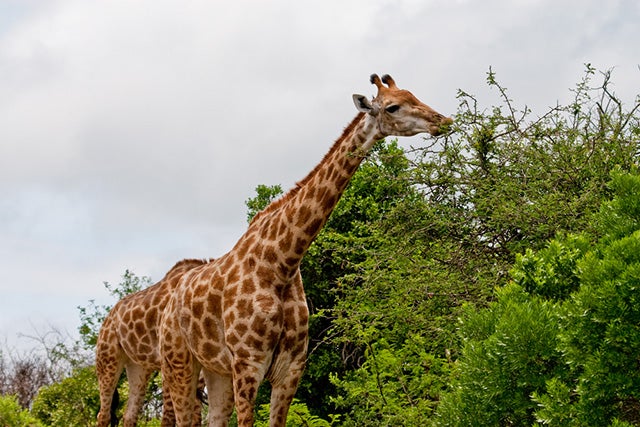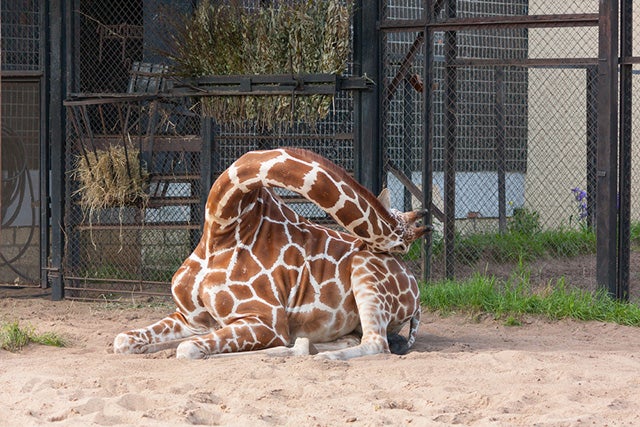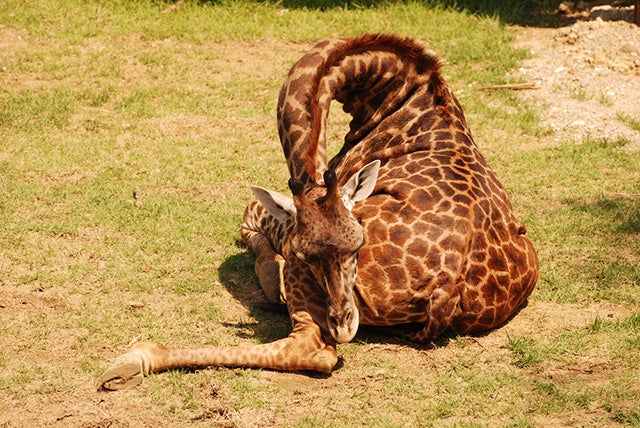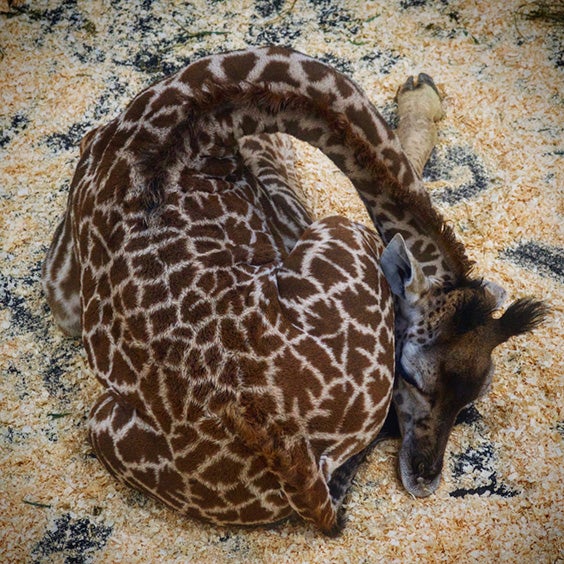Have you ever wondered how giraffes sleep? Do they just sit down and sleep away like most other animals?
It turns out that the answer is a little more complicated than that! Giraffes sleep in short bursts throughout the day, usually for around 30 minutes. This is thought to help them stay alert and avoid predators. They also have a unique way of sleeping that helps them conserve energy.
This post will look closely at how giraffes sleep and what makes their method unique. We’ll also explore some of the benefits of sleeping in short bursts.
About Giraffes
Did you know that people initially thought giraffes were a cross between a camel and a leopard? Certainly, some of the most fascinating African animals, giraffes, are unique physically and in terms of personality.
Where Do They Live?
Grasslands, savannas, and open forests are all suitable habitats for giraffes. Giraffes tend to congregate in places with a lot of acacia growth. Most giraffes may be found in the southwestern African countries of Zambia and Angola or East Africa.
Until the middle of the 20th century, giraffes were often found in West African countries located south of the Sahara Desert. But the inhabitants there have shrunk dramatically and are now distributed across a much smaller area.
What Do They Eat?
Because of their extraordinary height, they can consume leaves and shoots placed in areas inaccessible to other types of animals. Acacia trees, in particular, are sought after by these animals.
Their lengthy tongues assist them in feeding by removing leaves from the trees, which is an important part of their diet. A fully mature giraffe consumes more than 45 kilograms (100 pounds) of twigs and leaves per day and spends most of its waking hours feeding.
How Do They Sleep?
Giraffes occasionally doze off during the day, and when they do, they frequently do so while standing. Giraffes typically only recline during the night, tucking their feet beneath their body while maintaining an upright posture with their head.
They do not sleep for more than a few minutes at a time, and when they do, they curl their necks around and put their heads on or near their behinds. This posture is only seen while they are asleep.
How Do Giraffes Lay Down to Sleep?
Giraffes are known to relax while standing up, but recent studies have shown that they lie down far more frequently than was previously believed.
When lying down, they habitually tuck their legs underneath their bodies while maintaining a prominent head posture. It has been observed that giraffes can continue ruminating when in this position of rest.
Giraffes can sleep with their heads resting back on their rump, but only on rare occasions and for extremely brief periods that often do not exceed five minutes.
As a result of the severe danger and precarious nature of this position, it is only ever held for a small amount of time and very infrequently. According to studies conducted in zoos, giraffes enter a stage of sleep known as REM when positioned like this.
Why Do Giraffes Sleep So Little?
Giraffes sleep for just a few hours each day, and scientists aren’t sure why they sleep so little. Some people think it’s because they’re always looking for predators, while others think it’s because they need to stay alert to find food.
Researchers have developed a few hypotheses to explain this phenomenon. To begin, it’s a matter of straightforward self-defense.
When one lies down in the open in the Serengeti for long periods while exposing themselves to the view of several wild predators, one puts themselves in a very precarious position. Especially because getting up and down can be somewhat cumbersome and slow for such a gangly animal.
Whatever the reason, it’s clear that giraffes are built for short bursts of sleep. Their long necks and legs enable them to get up and move around quickly, and their large hearts and lungs allow them to last long periods without rest.
So, the next time you see a giraffe sleeping, watch and see how it does it. It’s an amazing sight!
Bottom Line
Because there are so many potential dangers they experience in the wild, giraffes must take short naps throughout the day. Giraffes are required to be vigilant at all times, even while sleeping because numerous predators view a giraffe as a delicious meal that can be enjoyed for several days. Because of this, giraffes that live in the wild seldom get more than five minutes of sleep at a time.
Photo credit: RU4077/Shutterstock;
Marci Paravia/Shutterstock;
davidstockphoto/Shutterstock;
Delmas Lehman/Shutterstock




